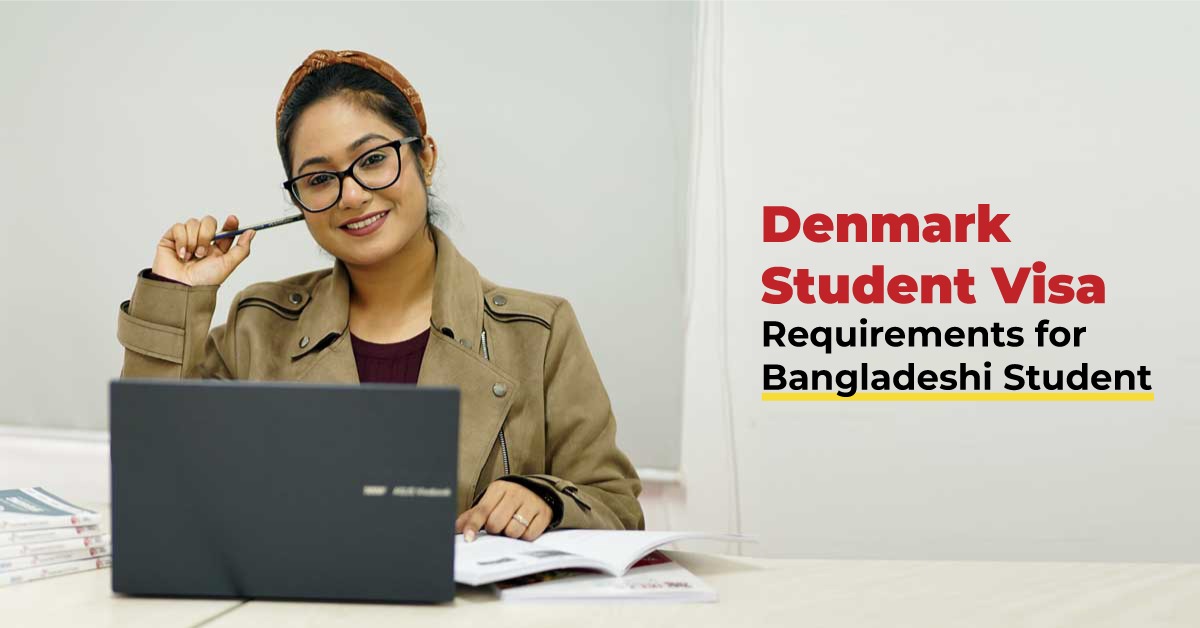
Studying in Denmark is a dream for many Bangladeshi students. With its top-notch universities, innovative teaching methods, and student-friendly environment, it’s no surprise why this Scandinavian country is such an attractive destination. However, making this dream a reality involves navigating the intricacies of Denmark’s student visa process—a journey that’s equal parts exciting and challenging.
For some, it might feel like a mountain to climb, especially when dealing with financial constraints, documentation, or cultural adjustments. This article is here to break things down into manageable steps, offering not just facts but stories of fellow Bangladeshi students who’ve successfully made their way to Denmark. Let’s make this process a little less daunting and a lot more achievable.
What Does Denmark’s Student Visa Require?
If you’re a Bangladeshi student aiming to study in Denmark, here’s what you need to know:
Admission Letter: Your Golden Ticket
The first thing you need is an acceptance letter from a Danish university. Universities like Aarhus, Copenhagen, or Aalborg are well-known for their diverse programs.
Story: Farhana, a bright student from Dhaka, was ecstatic when she received her acceptance letter for a Master’s in Environmental Science. She remembers double-checking every line to ensure it included her enrollment details, tuition fees, and course duration—a crucial step for the visa application.
Show Me the Money: Financial Proof
Denmark requires proof that you can sustain yourself during your stay. As of now, you’ll need to show about DKK 6,397 per month (roughly BDT 82,000).
Story: Kamrul from Chittagong faced hurdles proving his financial capacity. Instead of panicking, he opened a Danish bank account and deposited the required amount after borrowing from family and securing partial scholarship funding.
Language Proficiency: English Is Key
For programs taught in English, universities typically ask for an IELTS score of at least 6.5 or equivalent.
Tip: Struggling with language tests? Look no further than Ayesha, a Sylhet student who joined a local coaching center and improved her IELTS score after her initial attempt.
Medical Insurance: Safety Net
Danish immigration requires you to have valid health insurance. Some universities even guide students in selecting affordable options.
The Paperwork Puzzle
The application form, passport, photos, proof of residence, and academic documents—all need to be in order. Don’t let this overwhelm you. Break it into smaller tasks, and keep a checklist handy.
How Do You Apply?
Step 1: Prepare Your Documents
Think of this as assembling a puzzle. Ensure everything is translated and certified where needed.
Step 2: Submit Online
The Danish Immigration website makes this straightforward. Pay the fee (DKK 2,110) and book an appointment for biometrics at your nearest VFS Global center.
Step 3: Ace the Interview
This is your chance to explain why Denmark and why now. Practice mock interviews with friends or mentors.
Step 4: Patience Is Key
Visa processing can take 2–3 months, so apply early and track your application status regularly.
Challenges Bangladeshi Students Face and How to Overcome Them
Financial Constraints
Studying abroad isn’t cheap, and Denmark is no exception. Scholarships, part-time work opportunities, and financial planning are your best allies.
Success Story: Sadia from Rangpur applied for multiple scholarships, including the Danish Government Scholarship, and managed to secure enough funding to cover her tuition and living costs.
Adapting to a New Culture
Denmark’s culture might feel vastly different from what you’re used to in Bangladesh. From its cold winters to its emphasis on individualism, adjusting can take time.
Pro Tip: Join student groups, especially ones for international or Bangladeshi students, to create a support system.
Language Barriers
While most programs are in English, basic Danish can go a long way in daily interactions. Many universities offer free language classes for students.
Stories of Triumph
Practical Tips for Future Students
Summary
Navigating the Denmark student visa requirements for Bangladeshi students is undoubtedly a journey filled with challenges. But with the right preparation, determination, and a little help from stories like Nafis’s and Sadia’s, you can turn your dream into reality. Remember, it’s not just about studying in Denmark—it’s about growing, learning, and making a mark in the global arena.
FAQs
1. How much does it cost to apply for a Denmark student visa?
The fee is DKK 2,110, excluding additional service charges.
2. What’s the average cost of living in Denmark?
Expect to spend around DKK 6,397 per month.
3. Can I work while studying in Denmark?
Yes, students can work up to 20 hours per week during semesters and full-time during holidays.
4. How long does visa processing take?
Typically, it takes 2–3 months. Start early!
5. Are scholarships available?
Yes, including the Danish Government Scholarship and Erasmus Mundus.
6. Is knowing Danish necessary?
Not for English programs, but basic Danish helps in daily life.
7. Can I bring family on a student visa?
Yes, but additional financial proof is required.
8. What happens if my visa is rejected?
You can appeal or reapply after addressing the reasons for rejection.
9. Are there Bangladeshi communities in Denmark?
Yes, major cities like Copenhagen and Aarhus have active Bangladeshi groups.
10. What’s the best way to prepare for a visa interview?
Practice with friends or mentors and stay honest about your intentions.
Let these stories and tips inspire you to take that first step toward studying in Denmark. Your dream is closer than you think!